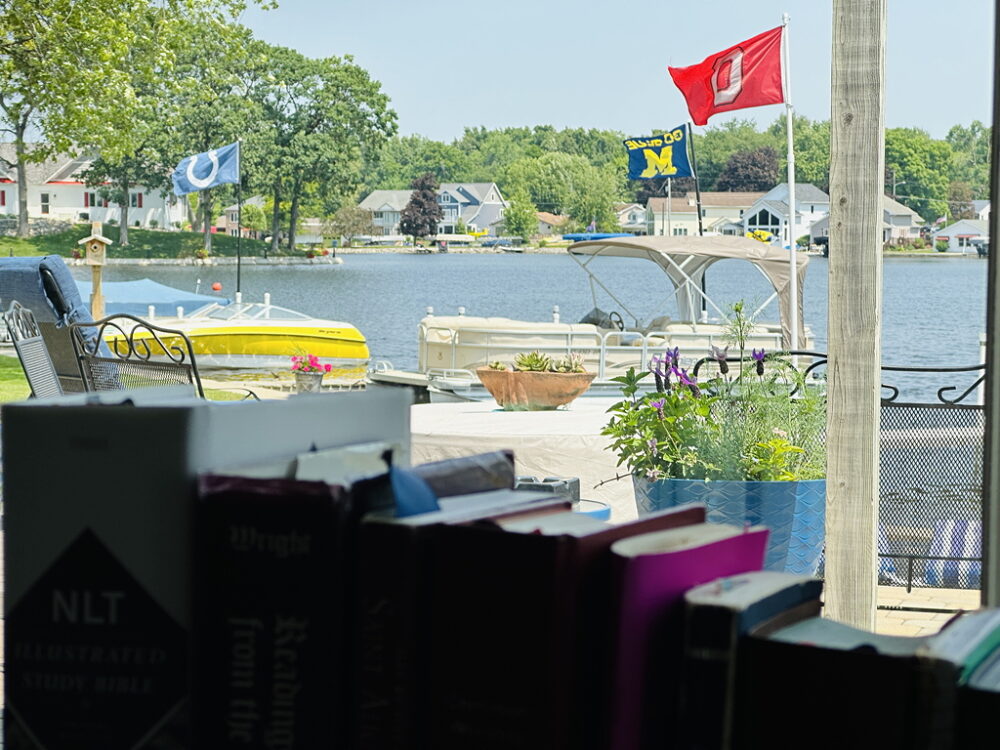Speaking of Ambrose, Bishop of Milan, Augustine’s mentor, Augustine writes:
But I had no notion nor any experience to know what were his hopes, what struggles he had against the temptations of his distinguished position, what consolation in adversities, and the hidden aspect of his life—what was in his heart, what delicious joys came as he fed on and digested your [God’s] bread. He for his part did not know of my emotional crisis nor the abyss of danger threatening me. I could not put the questions I wanted to put to him as I wished to do.
—Confessions, 6.3.3
Eighty years ago on March 10, 1943, my dad was inducted into the U.S. Army in Van Wert, OH. He was 20 years old at the time. A week later on St. Patrick’s Day, he left on a train for Camp Perry up by Lake Erie to begin his basic training. I never asked him what he felt like the day he was inducted (or at least I do not recall asking him because I do not know how he felt). Neither did I ask him about his thoughts and feelings as he left for basic training a week later (or at least I do not remember us ever talking about that). As I reflected on this, I wondered why I didn’t ask him about these things when he was alive? I wondered what it is about me that stayed my hand so that I didn’t ask him the questions I would love to ask him about today but can no longer do so.
Then I read the above passage from Augustine and realized that perhaps my experience is not all that uncommon. To be sure, maturity helped me take a much deeper interest in my parents’ lives as I began to realize that they too were human, just like me, and had similar hopes, fears, dreams, and worries that I have. But even now, I think of a million questions I would like to ask them but never did. Why did I not think to ask them about these things when they were alive? It is both baffling to me and frustrating.
Why is it that often we do not realize what we have until it is gone or taken from us? I suspect one answer to this perplexing question is that it is a product of alienation that our sin and self-centeredness has caused, an alienation that often exists between God and us and between humans. I know that when I was a young man, I thought I had better things to do and think about other than my parents and their experiences. I simply didn’t realize how impoverishing that was. As an old man now I wonder if my own kids will think about the things they could have asked me but didn’t after I’m dead.
So on this day, I am thankful for my dad’s service to his country. I am proud of what he did in Europe during World War II. I am thankful that God kept him safe during the war and gave him to me as a father. I am also thankful for the men and women of my dad’s generation. They truly did save the world from the unspeakable evil of Nazism and militarism.
Take time today and do two things. First, stop and give thanks to God for blessing us with the “Greatest Generation,” and for the sacrifices they made for this country. They are pretty much gone now, but that doesn’t diminish what they did or sacrificed for their country. Second, if you have parents, grandparents, or other family members still living, take time to talk with them and get to know them better. Ask God to help you learn about their hopes and dreams, their fears and worries, and share yours with them. Doing so will help you appreciate God’s great gift of family and friends.
Thank you, young soldiers, and thank you, God, for blessing us with them.
![]()



You must be logged in to post a comment.